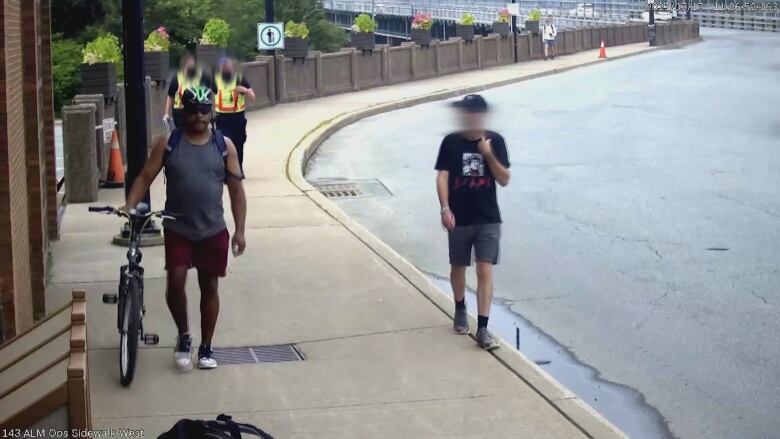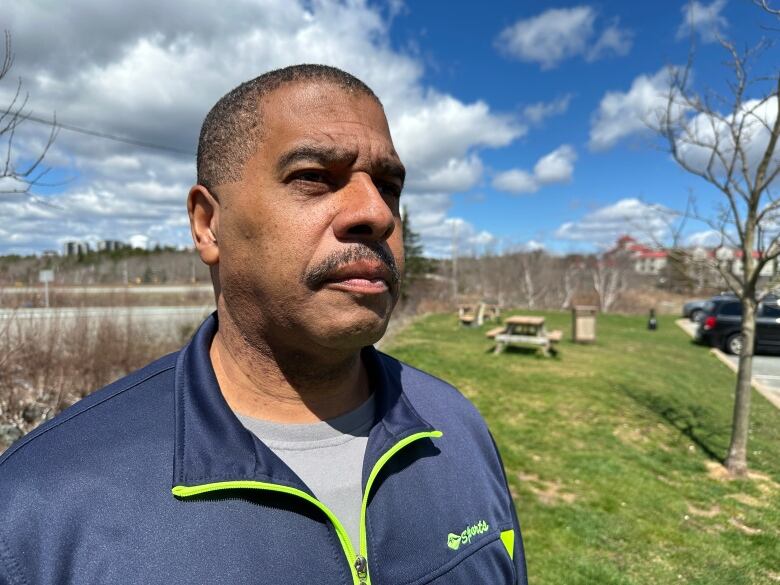Human rights inquiry hears from Halifax man who says he was racially profiled on bridge
Ross Gray is calling for accountability after 2021 incident

A human rights board of inquiry has been hearing evidence this week about a complaint bya Halifax manwho says officerson the Macdonald Bridge racially profiled him.
Ross Gray, who is Black,was walking his bicycle across the bridgeon July 17, 2021, when hewas tracked down by bridge patrol officers who accused him of riding in the pedestrian lane.
"It's important for me to be here because I need to send the message to the rest of the Black men that are getting stopped by the justice system," Gray said.
The 60-year-old received a written apology from Halifax Harbour Bridges, whichacknowledged the error at the time.
But Graysaid he didn't feel that was sufficient after being "stopped, harassed and chased." And he said it wasn't the first time he had an experience like that on the bridge.
The lawyer for Halifax Harbour Bridges told the inquiry that while a mistake was made, there was no evidence to suggest it was because of the colour of Gray's skin.
Ron MacLeod said the officerswere looking for a man who had been riding a bicycle and they genuinely believed it wasGray.
He said the officers had been instructed to step up enforcement that summer following complaints from people saying cyclists were creating problems on the bridge.
It turned out the person who was riding their bicycle was white. But MacLeod said as soon as the officers had corroborated that, they apologized. He alsosaid they werecourteous to Gray.
Kendrick Douglas, a lawyer for the Nova Scotia Human Rights Commission, said it was problematic that the officers didn't believe Gray when he was first questioned.
That should have been the end of the matter, Douglas said.
Officers did their jobs, lawyer says
But MacLeod said officers frequently deal with people who deny wrongdoing and are trained to get the facts, which they did, he said.
They were also acting on information that Gray was the person they were looking for from an operations workerwho had beenmonitoring surveillance cameras on the bridge.

MacLeod said Gray had suffered an adverse impact because he hadn'tcommitted any infraction.But MacLeod maintainedit was a case of mistaken identity and not racial profiling.
Gray saidbeing at the hearing made him feel revictimized and that theexperience still affects him.
"I'm always looking over my shoulder. I very rarely trust anybody," he said. "I don't go over the bridge anymore on my bike."
Benjamin Perryman, who is independent of the human rights commission, is the lawyer presiding over the hearing as the board chair.
Perryman reserved his decision and has six months to issue a written decision.












_(720p).jpg)


 OFFICIAL HD MUSIC VIDEO.jpg)
.jpg)



























































































